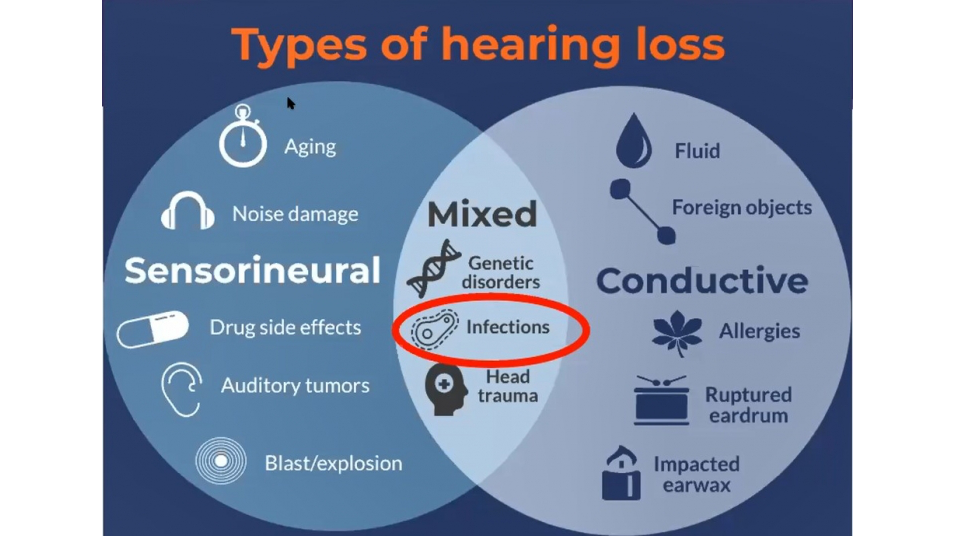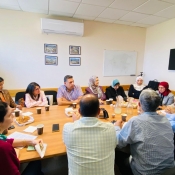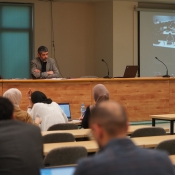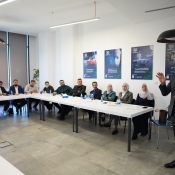Hearing sciences professor explores connection between COVID-19 and hearing loss in fourth public health webinar
Dr. Sara Alhanbali, a professor of hearing and speech sciences at the University of Jordan, has recently discussed the correlation between COVID-19 and hearing loss at a lecture organized by the Department of Audiology and Speech Therapy at Birzeit University on April 16, 2021.
Amal Abu Kteish, chair of the Department of Audiology and Speech Therapy, gave a brief overview of the topic, in which she noted a dramatic rise in sudden hearing loss cases in Palestine. Such a rise, she said, was worrying and deserves scrutiny, especially since sudden hearing loss accompanied with tinnitus is a relatively rare occurrence, affecting roughly 10 out of every 100,000 individuals.
Alhanbali began her lecture with a discussion of hearing loss in general, saying that the total number of individuals who suffer from hearing loss worldwide topped 460 million in 2018 — a figure that is most likely to reach 700 million by 2050. Although some hearing loss determinants are genetic, Alhanbali added, early screening and examinations, in addition to following safe listening tips and guidelines, can significantly reduce the chances of hearing loss.
One cause of hearing loss, Alhanbali added, are pathogens, such as the cytomegalovirus, which can affect pregnant women or people with weakened immune systems, and the rubella virus, which causes the German measles disease. Another virus that’s been thought to cause hearing loss is SARS-CoV-2, which causes COVID-19.
The theory that one of the symptoms of COVID-19 is hearing loss is plausible, explained Alhanbali, as the virus has been proven to affect other parts of the body’s nervous system, resulting in an inability to taste and smell.
Most studies on this connection, however, haven’t proven this link conclusively due to the fact that the sample size in such studies is small. Additionally, the current COVID-19 social distancing requirements mean that researchers can’t closely examine the symptoms reported by patients and have to rely only on their descriptions. Finally, noted Alhanbali, such studies can’t point to COVID-19 as the definite cause of such hearing loss because a record of the patients’ level or range of hearing before and after infection wasn’t available in most cases.
This virtual lecture is the fourth in a series of public lectures and talks launched by the Faculty of Pharmacy, Nursing and Health Professions to raise awareness of the COVID-19 pandemic and global efforts to combat its spread. The series highlights various public health issues and concerns related to the pandemic and features outside experts as well as professors and instructors from the faculty’s Audiology and Speech Therapy, Nutrition and Dietetics, Pharmacy, and Nursing departments.
Previously, webinars in the series covered the types of COVID-19 vaccines authorized for emergency use and the differences between them, the Palestinian health sector’s readiness to combat the coronavirus pandemic, and the role of the body’s immune system in countering and protecting against the coronavirus.







